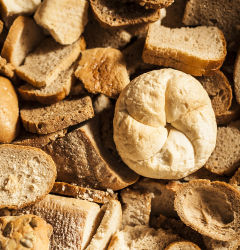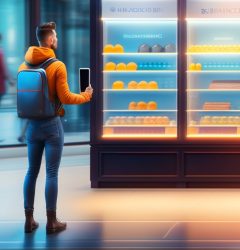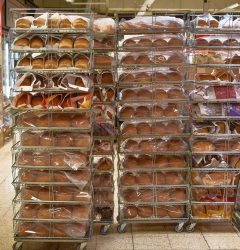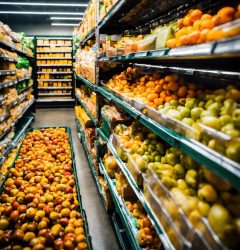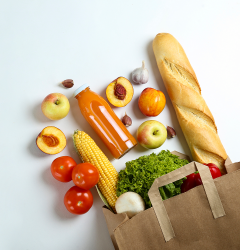16 Apr
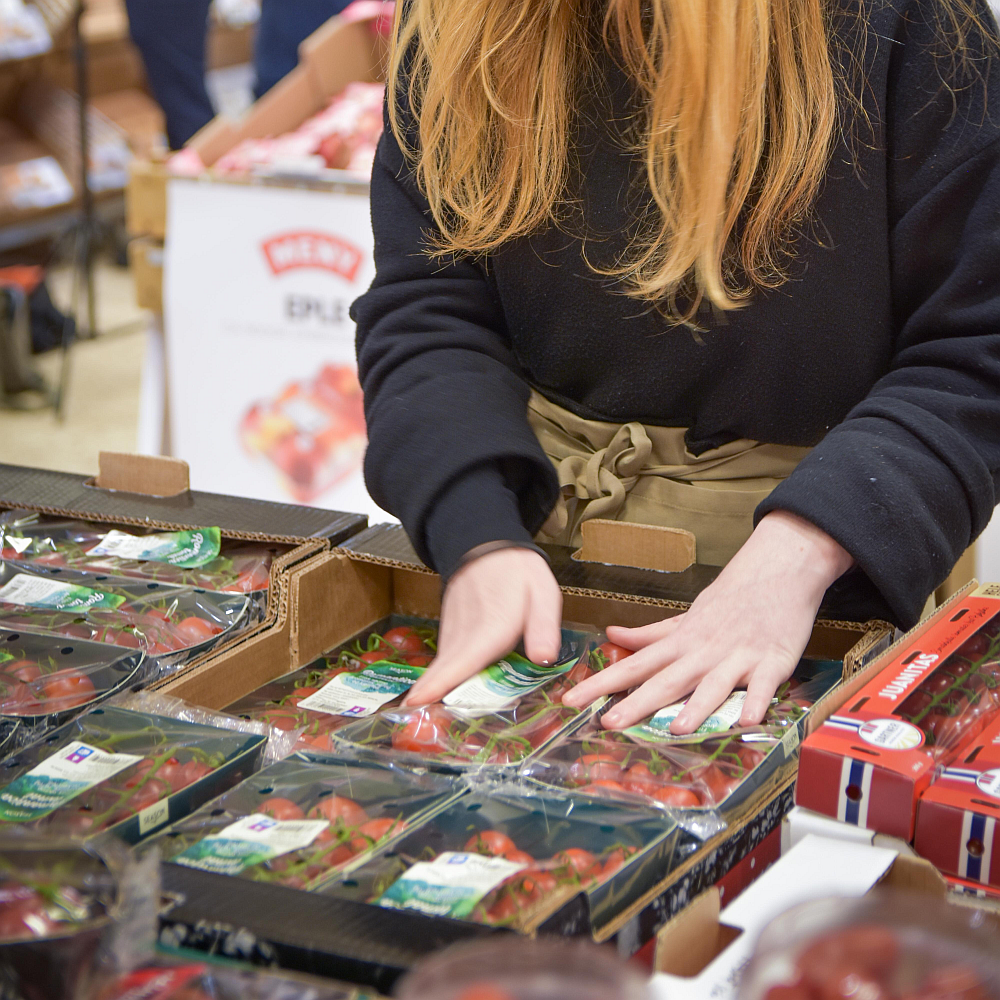
Retail Waste Management Strategies For Groceries
When it comes to groceries, stores see a lot of waste every day. Whether you are throwing away rotten or expired vegetables or just leftover food, a lot is wasted at the end of each day. While this might not seem like a lot daily, it accumulates into a lot of waste over the years. This is why retail waste management solutions are essential.
Whether you work for a retail store or own one, you should be implementing strategies to reduce your food waste. It is better for the environment, but it can save you a lot of money if you know just how much you need and don’t have a lot left over. With the proper planning and techniques, you can quickly reduce food wastage.
Why Waste Management In The Retail Industry Is An Issue?
As much as one-third of all the food produced annually for human consumption is wasted every year! Grocery stores and food retailers account for a significant portion of this waste.
For example, at the end of a working day, a typical grocery store will usually have about 50-60 pieces of retail bread wastage. Some bread is just leftover, and no one has bought it. You may find some that have expired or need to be thrown away.
Some of it may have expired and should be discarded. Especially if you consider the short shelf-life of bread, you’ll realize that you’re wasting about 5000 pieces of bread every year. So, it should be easy to imagine how much bread we waste as a whole. And that’s just bread. Add in other groceries and you have food that could feed the global population twice over.
If you consider larger supermarkets, the number becomes much higher. Tons of expired food are dumped each day. And the sad fact is, most of those even past their expiry date are still actually completely consumable. This is a huge expense that you can easily avoid. It also means there’s a lot of Carbon Dioxide being released into the environment.
Especially for fresh fruits and vegetables, the waste is very high as you end up throwing a lot of it away as it gets ruined easily. Fresh fruits and vegetables account for about 60% of all food waste!
Most of this ends up as solid waste in landfills, and only about 5% gets composted. In these landfills, this food waste decomposes to form methane. Methane is a greenhouse gas and is much more harmful than carbon dioxide.
Even the UN has decided to take a stand against this issue, and it is one of their Sustainable Development Goals. The goal is to decrease food waste at every stage of the manufacturing and supply chain, as well as cut global food waste per capita in half at the retail and consumer level.
Food waste has terrible effects on the environment; it’s also a massive waste of money. Imagine how much money you are throwing away. This is why retail food wastage is not only an environmental issue but also an economic issue.
What Can Retailers Do To Reduce Food Wastage?
With just a little bit of effort and awareness, you can prevent a lot of this food from going to waste. Assess your situation and keep track of how much you need every day. You can order less and save a lot of food. You can implement better practices like recycling, cutting back on packaging, and even donating some food to reduce waste.
Here are some steps to reduce grocery food wastage and become a green retail.
Assess And Keep Track
You can reduce a significant amount of food waste by being mindful of how much you’re selling each day. If you consider grocery bakery wastage, you’ll notice that sales go down to almost zero during the closing hours of the day. People tend to buy bakery items in the morning when they are fresh.
So just by assessing how much bakery food you have leftover every day for 15 days or so. You can average out how much bakery food you need to order. The same goes for almost all other food items.
If it’s perishable, keep track of how much you regularly sell and only order that amount. There’s no need to buy in bulk if you have to throw it away.
Donate Fresh Food
When it comes to fresh produce, you will notice that people want “perfect” produce. Many fruits and vegetables don’t get sold because of just a slightly off-color or blemish. This doesn’t necessarily mean that the food has gone wrong, as long as it is still okay, instead of just throwing it away at the end of the day or leaving it to rot.
Many people go hungry and would benefit from fresh fruits and vegetables. You can also use certain types of ripe produce for cooking as well. So, hosting food drives regularly can be a great way to reduce food waste and give back to the community.
Train Your Employees
You can also keep food for longer if you store them properly. So train your employees to handle food carefully and not waste it. Teach them methods to preserve food properly, so it lasts longer.
As you would want to give your customers the best, often, you have to throw away a lot of food just because of a superficial flaw. Train your employees not to throw away edible food just because there is a dark stain on it. Unless it’s absolutely necessary, don’t throw away food. Try to store them at a cool temperature.
Repurpose/Recycle
If you have the workforce to do so, you can repurpose fresh produce into different items that are easy to make. Certain foods might not sell on their own, but if you turn them into pickles and sell them, they could be a hit with your customers.
So if possible, try to repurpose your leftover food by cooking it or selling it differently. This does not mean you use food that has gone bad. Just use the food that is leftover but not expired.
How Link Retail Can Help You Reduce Waste?
While taking specific measures can help you reduce your retail waste, it can be intimidating. If you want optimum results, companies like Link Retail do all the hard work. With a team of experienced professionals, you get an assessment of how much food you waste. And also what kind of steps you can take to reduce that waste.
We at Link Retail give you a total assessment of your store, whether it be a grocery chain, a supermarket, or even a local retail store. We will evaluate your in-store performance and help you develop a plan that works best for you.
Starting from system modifications and piloting to even training your employees, Link Retail will guide you through it all. You’ll also get to run a semi-manual pilot that includes ordering, production, and waste management.
And of course, you will get regular follow-ups as well. And you get support with whatever you need to become a retail store with a low carbon footprint.
Conclusion
Food waste is a very concerning issue. More and more owners and companies are seeking retail waste management solutions. Just by implementing specific practices, you can not only save a lot of money and food. Not only that, you are helping the environment out by taking a greener approach. If you want to learn more about food waste management, please get in touch with us today!
Related Post
Tags
Keywords
Tags
Resources
© 2020-2024 Link Retail. All rights reserved.
